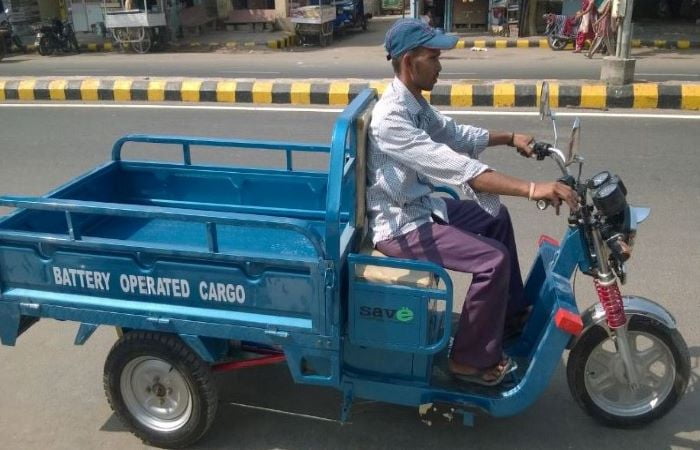A new report by KPMG and CII (Confederation of Indian Industry) has predicted that three-wheelers will lead the adoption of EVs in India, with 65%-75% of the vehicles switching over to electric by 2030. Titled “Shifting Gears”, the report, though, sees two-wheeler penetration to only reach around 25-35% of the market, despite the cost benefits of electric two-wheelers and the segment alone accounting for 80% of India’s annual auto sales. However, it does say that the adoption will be heavily skewed in favour of the B2B segment, where the figure is expected to reach an impressive high of 60-80% by 2030.
The report expects private electric car adoption to go from a low 1-3% in 2025 to 10-15% by 2030 — which in itself is not insignificant, given that only 3,600 e-cars were sold in the country in FY2019-20. However, up to 30% of taxis are expected to make the switch, possibly aided by better access to charging infrastructure and batteries that offer much greater driving range. Finally, 25-40% of the country’s buses are expected to make the switch over the decade, again possibly aided by improvements in EVs’ extended ecosystem.
Gadkari asks automakers to forego initial profits in expanding share of EVs
India’s Minister for Road Transport and Highways, Nitin Gadkari, has asked automakers to lower the costs of their EVs and forego initial profits in order to rapidly expand the market share of the vehicles. The statement comes just days after he claimed that India could become the world’s hub for EV manufacturing by 2025, even though the country’s automakers are currently prioritising the sales of ICE vehicles to revive the auto sector from the impact of the pandemic.
Mr. Gadkari has also revealed that the Centre was planning to build an e-highway between Delhi and Mumbai — although the date for completion has not been specified — and the project will be a part of the 22 “green highways” that the country will inaugurate in the next three years, including one from Bangalore to Chennai.
Bentley to go fully electric by 2030 and “end-to-end” carbon neutral
The UK’s luxury carmaker, Bentley, has announced it will sell only fully-electric cars by 2030 in a major revamp of its product lineup. Bentley’s expensive cars are known for their V12 engines, that consume much more fuel than mass-market alternatives and have carbon emissions that can exceed 300 g/km. The manufacturer will stop making IC engines by 2026, transition to a hybrid architecture after the date and eventually switch to 100% electric models. It will also target “end-to-end” carbon neutrality in its operations — without resorting to carbon offsets — which would require it to work with its suppliers in lowering their carbon footprints at source.
Incidentally, Rolls Royce, the world’s foremost luxury car manufacturer, is also planning to switch over to electric powertrains to comply with future legislation, which may forbid its customers from driving into zero-emission zones.
Canadian automaker unveils single-seat, “motorcycle” electric car for USD 18,500
A Canadian auto manufacturer has launched the single-seat, fully electric Solo in the US for an initial retail price of USD 18,500. The car lacks a second rear wheel and is therefore classified as a “motorcycle” by the US government, but it offers front and rear crumple zones for passenger protection. It is aimed at commuters who travel solo to most destinations, and its on-board 17.5kW battery is rated at a maximum range of 100 miles.
However, criticism against the car has already started to mount as its three-wheel design harks back to the 1960s and 70s and because of the choice of used cars available to customers for under $15,000. Also, in lieu of technically being a motorcycle, critics say the manufacturer may not have subjected the Solo to the kind of crash tests mandated for modern cars to ensure passenger safety.
About The Author
You may also like
New report shows ways to build an efficient e-bus ecosystem in India
Corporate watchdog accuses Toyota of misleading marketing, greenwashing
Electrifying India’s Roads: Financing EVs – Challenges, Progress and the Road Ahead
Five lithium and cobalt mines identified in overseas exploration
India approves $7 billion plan for 10,000 electric buses in 169 cities in next 10 years


